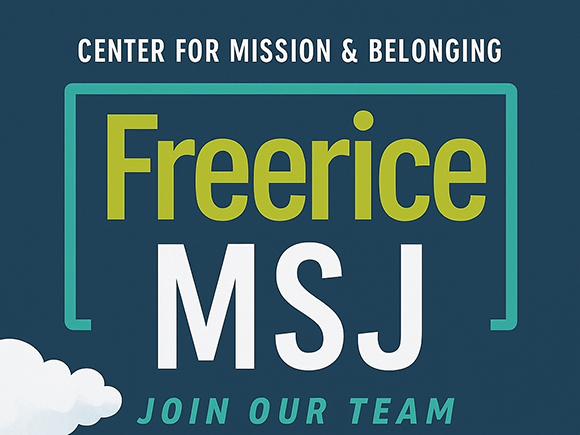The state of the world can seem hopeless most days. You might think that there is nothing you could do to help with a global issue like food insecurity. But there is, and that thing was hidden right here at the Mount all along.

In 2025, we are experiencing a significant loss in global humanitarian efforts. There have been several cuts to programs and services previously provided by the United States. Humanitarianaction.info states, “The United States of America—which funded 45 per cent of the global humanitarian appeal in 2024 and up to 70 per cent some parts of the world such as Latin America and the Caribbean and the Democratic Republic of the Congo (DRC)1—announced a suspension and subsequent termination of many humanitarian contracts, with sudden and widespread consequences around the globe.”
These consequences include well over 79 million people living in crisis conditions who will no longer get assistance from the United States. Protection services previously provided will also now be off the table. The risk of preventable disease and mortality has also increased, as health and water, sanitation and hygiene services have been cut. Many more disastrous consequences can and will arise because of these humanitarian cuts for the countries that need them most.
A massive one is the cut in food assistance and food rations that were sent to the 80+ million people that the World Food Programme estimates had received food in 2024. That number is down 21% in 2025, after the aforementioned cuts to global programs. A United Nations report from 2023 found that 2.33 billion people suffered from moderate or severe food insecurity globally.
That does sound utterly depressing, and perhaps hopeless. But it’s not. I spoke with William Lambers, a double graduate of Mount St. Joseph University and contributor to the Cincinnati Enquirer, Washington Post, and other news outlets. He’s one of the writers for Freerice, a website run by the World Food Programme. It’s dedicated to the problem of world hunger.
On this website, schools compete to answer trivia questions in a list of areas. Each correct answer yields a donation 10 grains of rice to the United Nations’ food program, the World Food Programme. They donate food to war zones. When the war in Gaza was at its worst, donations were still being delivered there.
The UN food program is the largest hunger relief organization in the world, winning the Nobel Peace Prize in 2020. Lambers writes frequently about the ongoing war in Gaza, and the World Food Programme is the leading hunger relief organization working in Gaza to get food to the people.
“Whenever there’s a country that needs help, they call in the World Food Programme to provide aid,” he said.
Mount St. Joseph has a group on Freerice. Only 220 people on campus know about it. We are ranked 614th compared to other schools that use Freerice. This isn’t bad, but Lambers wants us to get number one.
Lambers is looking for a captain to lead our Freerice team here at the Mount.
“We had another student named Grace, and she was the big organizer behind it, but she graduated a few years ago, and they have not had a replacement for her to lead on campus.”
This campus needs a leader to organize events and, most importantly, to get the word out for this team that has more or less gone under the radar, compared to other events on campus. If being a leader appeals to you, please talk to Michelle Arnold, Assistant Director of Mission and Belonging, or Dr. Michael Sontag, Dean of the School of Arts & Sciences.
The Freerice team also has multiple matches each year. On such days, schools will be competing individually to see who can win the most by the end of the day. Students can win scholarships, and the team that donates the most will receive a $100 Amazon gift card, which they can use to support their team.
MSJ players are also invited to play in the Freerice Player of the Year Contest. The top scorer at the end of the season will win a prize and will be known as the Heisman Trophy winner of Freerice. There are matches on the week of Halloween and the week of Thanksgiving. These matches are not to be confused with the Player of the Year contest mentioned above.
How do you join? It’s quite simple. There used to be an app, but it’s now just a website called Freerice.com. In the top right corner, you can create an account with your email and password. From here, you should go to the opposite side of the screen to the three bars lined up beneath each other. There is an option there called “groups.” From here, click on “join existing group.” At this point, the site will ask you for a group code. We have a few different groups on campus. The general code is TUBYUHN5.
There is a code for our Writer’s Block sections of Freerice. Both use the same one, MDQ7GAH. It is worth mentioning that if you sign up for Writer’s Block, you can, and probably should, sign up for the main, general group for the campus, too, so you can get points for both. The code for the Player of the Year contest is W3G6CN8E.
Once you type those codes in, you’re free to play the game. Categories include English, art culture, history, food, ambassadors for change, among others. You’re learning things while also helping people who are desperately in need.
Freerice is helpful at times like this. Programs are being shut down. More people are dying. It’s nice to know that there’s still an option when other options seem to be running out. Freerice is an incredible way to continue the Mount’s mission of service to others, and respect and concern for all persons.
Resources:
Freerice. (n.d.). Profile.
Humanitarian Action. (2025)
Mount St. Joseph University Mission.
United Nations. (n.d.). Global issues: Food.
World Food Programme. (n.d.).

